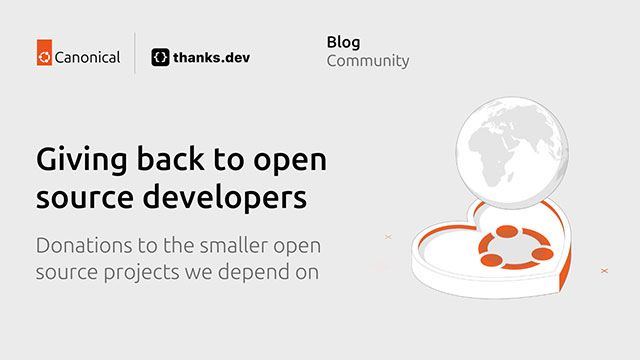Canonical Announces New Support Package for the Open Source Community
Canonical has announced plans to donate $120,000 to the open source developer community over the next year. The company plans to contribute $10,000 per month for 12 months, starting with the first approved payment in April. The funds will be distributed through the thanks.dev platform.
The initiative was launched by Canonical to provide financial support to smaller open source projects that the company is dependent on or involved in. This is considered Canonical's 'humanitarian' support for the open source community, similar to other support policies the company currently maintains for several large open source organizations such as the Eclipse Foundation, the Cloud Native Computing Foundation (CNCF), and the GNOME Foundation.
Thanks.dev works by analyzing a company's GitHub repositories and dependency tree, up to three levels up, and algorithmically distributes donations based on the most used dependencies. Canonical says it can adjust how funds are distributed at the programming language level to better reflect their usage.

Canonical uses projects created by developers like nedbat, the author of coverage.py, and adamchainz, who maintains time-machine, a library used on the Ubuntu website. The company says even small recognitions or financial support can be important to open source developers. It's Canonical's way of showing appreciation for these types of projects. Much of Canonical's code is open source and developed openly on platforms like GitHub and Launchpad.
Canonical's announcement comes after the recent release of Ubuntu 25.04 "Plucky Puffin," an interim release that includes several new open source components that benefit from active upstream development, such as the GNOME 4.8 desktop and Linux kernel 6.14.
You should read it
- ★ Ubuntu 25.10 'Questing Quokka' Development Begins, Release Roadmap Already in Place
- ★ Ubuntu 25.04 Officially Released with GNOME 48 and Linux Kernel 6.14
- ★ Tips and tricks after installing Ubuntu
- ★ Canonical releases Ubuntu Frame for embedded screen developers
- ★ 8 ways Ubuntu changes and improves Linux